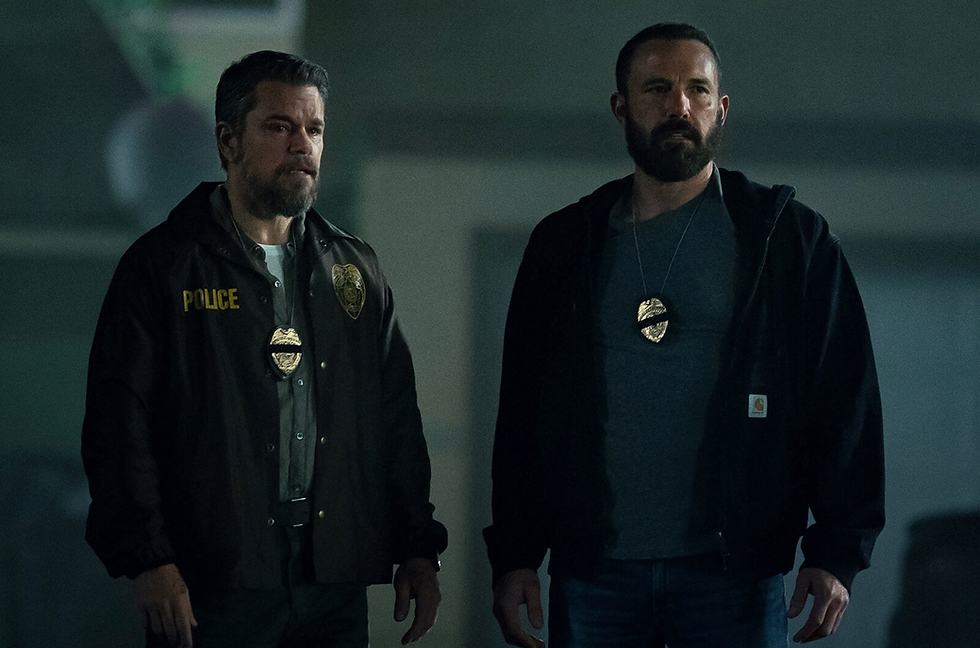NUREMBERG Review
- Gerald Morris

- Nov 7, 2025
- 3 min read

James Vanderbilt’s Nuremberg delivers a haunting courtroom drama that probes the minds behind humanity’s darkest chapter. Anchored by a towering Russell Crowe performance and a chilling moral tug-of-war, the film is long, heavy, and often brilliant — even when it drags its feet.
PLOT & SETUP
Directed by James Vanderbilt, Nuremberg adapts Jack El-Hai’s 2013 book The Nazi and the Psychiatrist, chronicling psychiatrist Douglas Kelley’s (Rami Malek) psychological evaluation of Hermann Göring (Russell Crowe) before the infamous Nuremberg trials. The story is inherently claustrophobic — much of it contained to stark rooms, conversations, and internal warfare between ethics and empathy.
As Kelley probes Göring’s psyche, he finds himself navigating the unsettling gray space between understanding evil and rationalizing it. What begins as a professional assessment turns into a deeply personal moral crisis, mirroring the collective conscience of a post-war world asking itself how such monstrosity could exist — and whether it could ever return.
PERFORMANCES
This is Russell Crowe’s movie, make no mistake. As Göring, he is equal parts monstrous and magnetic — charming, intelligent, and deeply vile. Crowe walks the tightrope of portraying a man capable of both horrifying acts and unsettling charisma, forcing the audience into the same conflict as Kelley: one minute you’re appalled, the next you’re listening to him talk as though he were just another man.
The ensemble gives the film its backbone — Leo Woodall, Michael Shannon, and John Slattery in particular bring bite to smaller roles. But the misfire, surprisingly, is Rami Malek. His take on Dr. Kelley feels oddly detached, like he’s starring in a slightly different movie. Malek’s quiet intensity works in certain beats but undercuts the film’s emotional spine; where Crowe gives us moral turbulence, Malek gives us mild intrigue.
THE SCREENPLAY HITS

Vanderbilt’s direction feels deliberate and restrained — sometimes too much so. The film is overly long by 20–30 minutes, but the writing itself is exceptional. The dialogue is sharp, verbose, and layered with insight into war, justice, and psychological control.
The script doesn’t shy from difficult truths. It confronts the grotesque legacy of the Holocaust while weaving in moments of eerie humanity — particularly as we glimpse Göring’s family and the shadow of his own imprisonment. Those scenes force viewers to question how much empathy should exist even for history’s worst villains.
Visually, Nuremberg thrives in its oppressive simplicity. The muted palette, period detail, and cold lighting create a visual echo of post-war disillusionment.
Nuremberg isn’t just a history lesson — it’s a mirror. The film reflects how easily hate can masquerade as charisma, how justice can waver in the face of intellect, and how societies still wrestle with the same bigotries that haunted 1946. It’s sobering, yes, but it’s also quietly hopeful. The triumph isn’t in punishing evil — it’s in ensuring it never gets normalized again.
OSCARS?
Expect Nuremberg to be a late-season dark horse. Its historical gravitas and prestige angle put it in play for Best Adapted Screenplay, and Russell Crowe could absolutely sneak into Best Actor contention if the campaign catches heat. Michael Shannon could also emerge as a dark-horse Supporting Actor possibility.
While I currently have it pegged only for screenplay, this is exactly the kind of morally complex war drama that tends to resonate with Academy voters once screeners start circulating.
THE VERDICT
Nuremberg might overstay its welcome, but it earns the right to speak. The performances, particularly Crowe’s, are gripping; the writing is smart, and the moral weight lingers long after the credits roll. It’s a film about history, yes — but more urgently, about memory.
🍿 SCORE = 75 / 100
Nuremberg is playing in theaters (11/7/25)









Comments